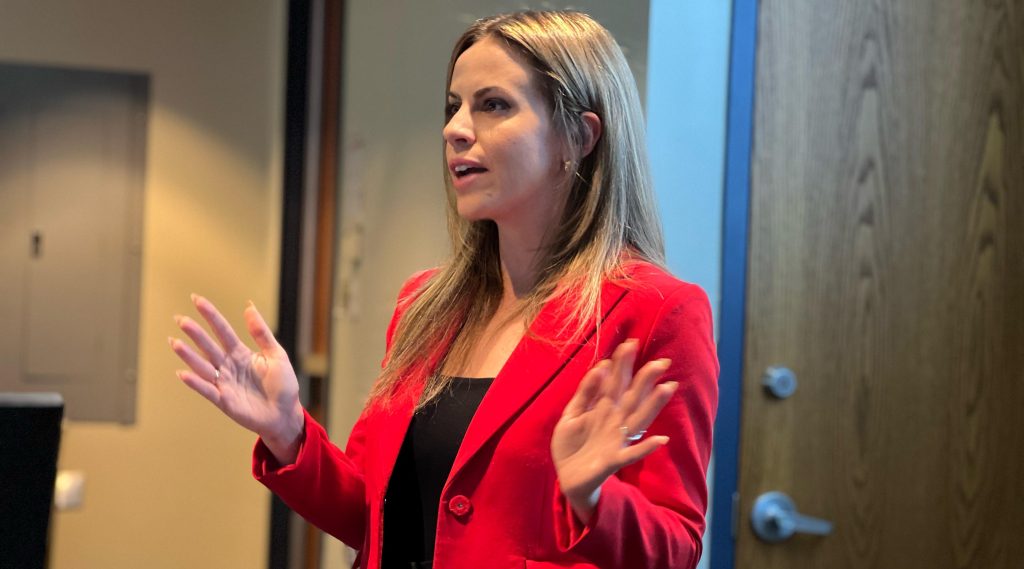Since the Supreme Court’s decision in Dobbs v. Jackson Women’s Health Center last June, lawyers, healthcare providers, and people seeking abortion care are actively working to understand access to abortion care in a post-Roe world. The issue of abortion access and reproductive healthcare was the focus of two events at BC Law in April.
On April 26, two attorneys from Planned Parenthood League of Massachusetts (PPLMA) joined an event hosted by the Public Interest Law Foundation, If/When/How: Law Students for Reproductive Justice, and the Children’s Rights Group.
In a conversation entitled “Reproductive Rights and the Constitution,” Sheila Ramirez director of health policy and government relations at PPLMA, and MaryRose Mazzola, director of Planned Parenthood’s ASPIRE Center for Sexual and Reproductive Health, provided a historical overview of the constitutional right to abortion and discussed how organizations like Planned Parenthood are navigating abortion care in light of the Dobbs decision.
The second half of the presentation included a legislative drafting workshop, designed to help students better understand the process for writing effective laws. Attorney Mazzola emphasized the critical importance of state legislative efforts to protect abortion rights in a post-Dobbs world.
The following day, picking up on this issue of state-level reproductive rights policies, If/When/How and the Health Law Society hosted a second event with the Center for Reproductive Rights. Two attorneys from the center remotely joined a group of about forty-five students and faculty for a briefing on the recent case, Alliance for Hippocratic Medicine vs. US Food and Drug Administration, a Texas District Court decision that invalidated the FDA’s 2000 approval of mifepristone, one of two drugs used in most medication abortions in the United States.
Vidhi Bamzai and Lizzy Hinkley began with an overview of the case and its procedural posture, highlighting the fact that targeting the FDA approval process is a “novel approach that could have very serious implications for other drugs” unrelated to abortion. They then discussed the legal issues, the recent Supreme Court stay of the Fifth Circuit decision pending an appeal, and what individual states are doing to prepare in case the decision is ultimately upheld.
Though both events highlighted the uncertainty around abortion access, they also emphasized the importance of political engagement and state-level policy efforts in protecting reproductive rights for all.


